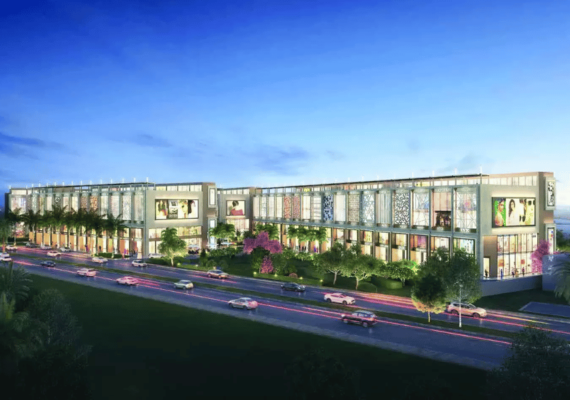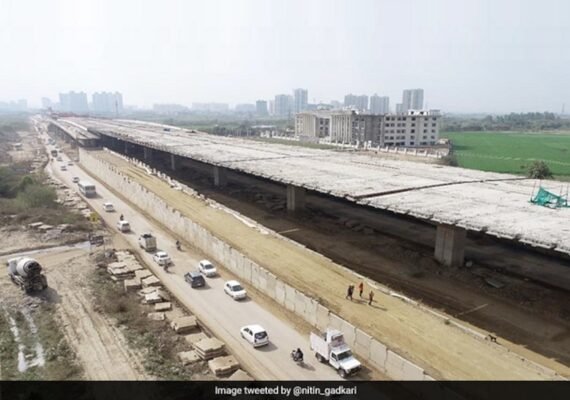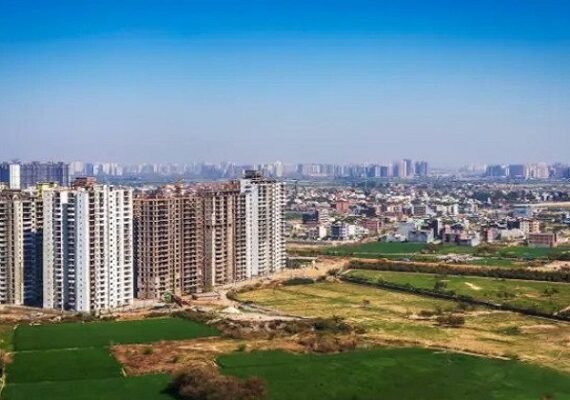Shapoorji Pallonji CEO Venkatesh Gopalakrishnan said the sale volumes are back to pre-demonetisation levels, and demand is more consistent now, though prices have not risen.
While the real estate market has been quite slow for the past 3-5 years, it has seen some amount of revival over the last 4-5 months. In an interview with Mint, Shapoorji Pallonji CEO Venkatesh Gopalakrishnan said the volumes are back to pre-demonetisation levels, and demand is more consistent now, though prices have not risen.
How do you perceive the current real estate market in terms of demand?
Obviously, the market has been quite slow for the past 3-5 years. In fact, before November 2016, we witnessed some type of uptake, but 6 to 7 months after demonetisation, the market fell to less than half of what it was in terms of residential real estate absorption.
However, over the last 4-5 months, there is some amount of uptake, at least in our projects. We have at least gone back to volumes before demonetisation, in some cases even more than that. The demand or the volume is coming quite consistently.
Having said that, it is too early to say that there is a recovery, or something could be sustained for the medium- to long term. But we are quite happy that there has been an uptake in the last 5-6 months. Therefore, our outlook is relatively a little more positive than what it was 6-7 months ago on residential real estate.
As far as commercial real estate is concerned, it’s actually the other way around, where the last 3-4 years were extremely good. If you look at the major cities especially the absorption and increase in the rentals of information technology and information technology-enabled services (IT/ITES) and other commercial office space in cities like Bengaluru, Mumbai, Pune and Hyderabad, it’s been quite good. Along with healthy absorption they are also accompanied by increase in rentals. In fact, in some areas, rentals have increased 6-7% year-on-year in the last 3-4 years. Having said that, now probably it has reached that level that you cannot sustain a 7% increment going ahead in rentals; it almost reached the saturation point. So we are yet to see how it turns out. Absorption may continue, but rentals increase at this pace will not continue.
Now, within residential housing, lower ticket size houses or affordable and mid housing is doing well, even for us, compared to luxury or premium housing. Going ahead, it has very high correlation with economy growth, especially residential housing sector.
We have to see how gross domestic product (GDP) and economic growth is settling down. Today consumer-led sectors in the economy are doing good. For instance, the recent result of Maruti and other companies in terms of vehicle sales. These are indicators of economic growth. But with things happening in the banking sector and the fact that there is fear that liquidity might be squeezed, we would have to wait and watch whether this level of GDP growth is sustainable or not.
What about the property price trend in the last few years?
Prices have not increased. However, it depends; you cannot generalize on that. I would say in some areas there has been an increase of 5-6%, in certain areas 1-2%, while in certain areas it was flat. For Mumbai areas, largely the prices remained flat in the last 3- 4 years. In real terms, probably after taking into account subvention and other schemes, it is not even linked to inflation absolutely.
Even if we talk about the near future, absorption is more important rather than price and thus I think it will take some more time for prices to move ahead.
It’s been a year since the Real Estate Regulatory Authority (RERA) was implemented. What has it changed for different stakeholders?
I won’t say that nothing has changed. I think the perspective of how one would look at developing, buying or selling real estate has certainly changed. Because there are a set of regulations which we feel, that in the longer term or a larger sense, are positive for industry players who want to play the rules of the game in an appropriate manner. Certainly, we feel that it is positive, of course RERA had certain teething issues, and there was lack of clarity on certain regulations and provision. But over a period of time, one has to put that behind and acknowledge that you have to consider this while you go ahead and develop. But things like you have to launch only with approvals and registration and there has to be reciprocal charges such as penal interest, and level-playing field between developers and customers, are positives.
I won’t say that there is a consolidation, but there is a move that certain players who are small or marginal or to some extent unorganized developers do not want to play the development game. Because they fear that the regulation and the consequences thereof maybe quite stringent in the long term. Therefore, they are approaching larger developers offering their lands or projects. We have seen more traction towards corporate developers like us, especially in the last 6-8 months.
Are you also looking or considering the proposal of consolidation from smaller developers?
Many such opportunities are coming up. I think what we look at is fundamentally medium- to long-term plans. We want to grow our residential portfolio and lease out our commercial portfolio. Broadly, our residential portfolio is 80-85% and commercial is 15-20%. Within that strategy, the level of opportunities has grown over the last 6-8 months, that’s not been the reason to change gear.
Yes some small developers having land parcels and projects at good locations, but who are unable to execute the projects, are approaching us. We have the wherewithal and are confident that we will do justice to projects and its customers and therefore we are looking at it as an opportunity.
But at the same time we are also looking at this cautiously, because what happens is that when there is a lot of distress in the market, you get some good and some not that good opportunities. We are focusing on the location and the partner. That has been our philosophy and we continue to do that. But yes, over the last 6-8 months we have got a lot of opportunities and we have taken some of them.
You recently bought a few land parcels in the National Capital Region. Are you planning to launch projects soon?
Yes, we are planning to launch projects this year. Actually we have been looking towards NCR market since 6-7 years, but were able to buy land only in the last one year. Why? Because that is one market which has softened greatly, and even land prices have softened. If you see across the country otherwise, land prices are quite inflexible and don’t fall so easily. But in the NCR market, land prices have fallen and we thought that it has fallen to that level where there is a clear opportunity for us to buy and build a product and sell it at a reasonable and affordable price. We have two land parcels over there. From a middle income perspective, we have a company called Joyville and under that banner we will come up with projects on Northern Peripheral Road in Gurgaon with a ticket size of Rs60-70 lakh. On the same road, we are planning to launch another project in the range of Rs90 lakh and above. We are planning to launch both projects in the second half of this year. We also have land in Noida and are planning to launch a project soon.
Source : LiveMint










